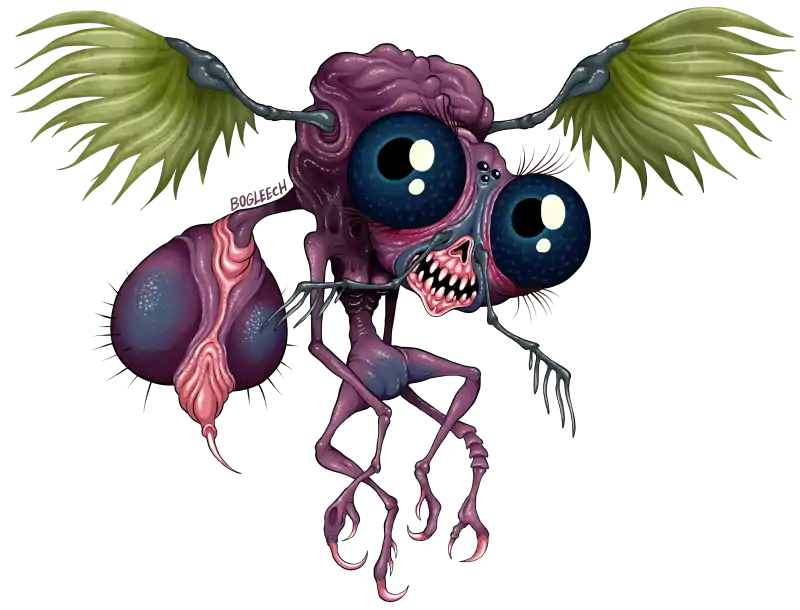Vespicable (5e Creature)
Vespicable
|
Small monstrosity, chaotic evil Armor Class 13 (natural armor)
Damage Vulnerabilities fire ACTIONSSting. Melee Weapon Attack: +4 to hit, reach 5 ft., one target. Hit: 16 (4d6 + 2) poison damage, and and the target must make a DC 12 Constitution saving throw; on a failed save, the target is charmed if the vespicable is female, or poisoned if the vespicable is male. The target can remake this save at the start of its turn.
|
These creatures are the result of the unnatural fusion between a humanoid and a parasitoid wasp. As their name suggests, vespicable are a widely-reviled species, due not only to their crude and short-tempered personalities but also to their method of reproduction. The sting of a female vespicable attacks the nervous system and leaves the victim weak and suggestible; in this state, the female will inject its eggs into the host, where they eventually hatch and eat the creature from the inside out. Human children are especially favored as hosts due to their convenient size and weak immune systems, earning the vespicable a bogeyman-like status in primitive humanoid communities. Variant: Giant HornetSome vespicable are created using larger, non-parasitic wasps. They use the same statistics as a normal vespicable, aside from the ones listed here: |
Back to Main Page → 5e Homebrew → 5e Creatures


